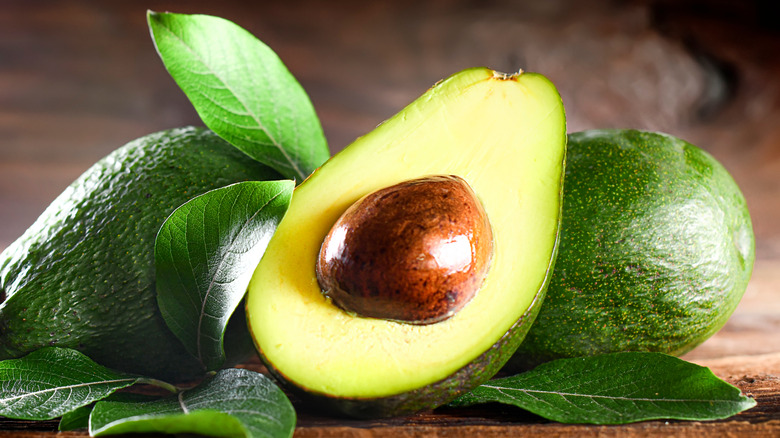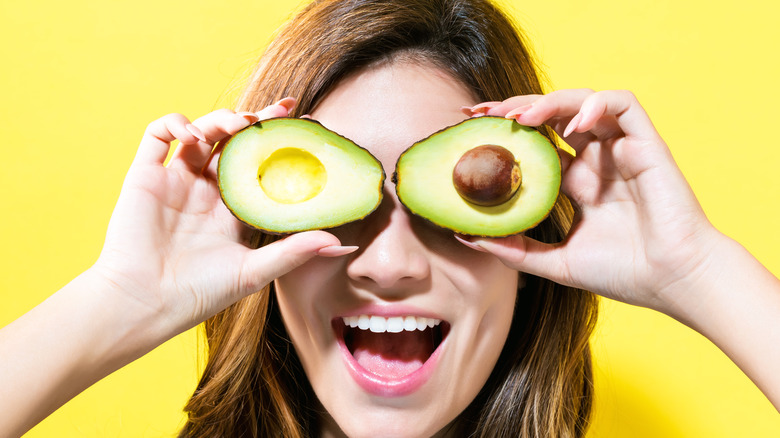How Much Sugar Is In An Avocado?
The avocado is a nutritional powerhouse. You can enjoy it as-is, mix it into smoothies, toss it in salads, or make guacamole and other healthy side dishes. One serving, or half an avocado, has roughly 160 calories and nearly 7 grams of fiber, reports MyFoodData. It also boasts about 11% of the recommended daily vitamin C intake, 10% of the recommended daily amount of potassium, and moderate amounts of zinc, magnesium, and vitamin K.
What makes this fruit stand out is its high content of healthy fats. Avocado contains mostly monounsaturated fatty acids (MUFAs), along with moderate amounts of polyunsaturated fats, including omega-3s. These nutrients may help improve blood lipids and cardiovascular health, according to 2013 research published in the journal Critical Reviews in Food Science and Nutrition. What's more, avocado consumption can slow down aging and make it easier to maintain a normal weight. Lutein and zeaxanthin, two of the key nutrients in this fruit, promote eye and skin health, while vitamin A and other antioxidants may reduce cancer risk.
Unlike most fruits, avocado is very low in sugar, hence its popularity among dieters. Plus, it contains large amounts of fiber, keeping you full for longer — but how much sugar is in avocados and why does it matter?
Avocados have less sugar than you might expect
Fruits are generally high in carbs and sugar. Grapes, for example, contain 15 grams of sugar per cup, according to MyFoodData. Avocados, on the other hand, are virtually sugar-free. One serving has only 0.2 grams of natural sugar, including D-mannoheptulose and perseitol, notes a 2013 report featured in Critical Reviews in Food Science and Nutrition. D-mannoheptulose, a monosaccharide, may improve glycemic control and aid in weight management, according to the review authors.
Due to its low sugar content, avocado has a glycemic index (GI) of around 40, reports a 2015 study published in the Journal of Ethnic Foods. This number measures the impact of carbohydrate-containing foods and beverages on blood sugar levels, explains WebMD. Pineapple, watermelon, breadfruit, and bananas have a GI of 52 or higher. Avocados and other foods with a GI below 55 have negligible effects on blood sugar, which makes them safe for those with diabetes.
The fat in avocado may further improve glycemic control. In a 2007 clinical trial published in the Journal of the American College of Nutrition, researchers found that diets high in monounsaturated fats can reduce insulin resistance and postprandial glucose levels in people with obesity and diabetes. Avocados also contain dietary fiber, which slows sugar absorption into the bloodstream and supports heart health, per the Mayo Clinic. Just make sure you don't go overboard — these fruits are high in calories and can lead to weight gain when consumed in excess.


